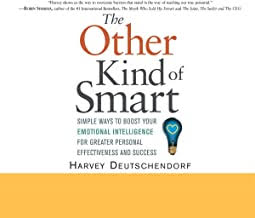By Harvey Deutschendorf
According to a research study conducted by the MIT School of Management, around 30 million US workers experience their workplace as toxic. The research found that there were three basic factors that lead to toxic workplaces, bad leadership, social norms, and poorly designed job roles. The results were obtained from viewing over four million employee reviews at Glassdoor. Bad leadership spreads down and the attitudes of leaders will permeate the organization. At the worst, leaders can create toxicity by exhibiting disrespect, backstabbing, favoritism, and pitting employees against one another. Even if they don’t exhibit it themselves, they notice it and do nothing about it, they are giving tacit approval. Toxic social norms can become normalized among employees, or a segment of them. Even if the original leaders leave, toxicity can become ingrained and stay. Poorly designed jobs lead to overwork and confusion. Feeling powerless over managing their work and micromanaging are major factors that lead to stress and toxicity.
Here are some ways that can help prevent toxicity from becoming ingrained in the workplace.
Healthy workplaces don’t just come about by themselves. Leaders must take a proactive role in building them. First, by demonstrating meritocracy and looking more closely at what everyone contributes. To do this, they will need to overcome an inclination to favor and promote those that they like and those that are good at ingratiating themselves to their leaders. While it takes extra time and effort, recognition must be individualized, as one size does not fit all. “More than two-thirds of managers are overwhelmed, so building a connection with each employee often gets deprioritized,” said Jaclyn Margolis, Associate Professor at Pepperdine Graziadio Business School, “However, having a strong connection with your manager is the foundation for nearly everything in the workplace, from employee productivity to job satisfaction.”
Hard working, talented employees will be turned off if they see those who give much less receiving as much recognition and being rewarded the same as they are. Recognition needs to be given not only for achievement but for those who are supportive of their fellow employees. Tillis Lederman adds, “Often leaders need to seek out opportunities to appreciate efforts, especially with those that are focused on details rather than the decision makers and problem solvers.” Employees can be encouraged to recognize and give shout outs to others who have gone out of their way to support and encourage their colleagues. Leaders can actively let it be known that this will be one of the major considerations when deliberating for promotions within the organization. Leaders must become habitual about looking for and recognizing when someone is doing something right and well.
Everyone wants appreciation and recognition. Studies have shown that people who feel appreciated will put in more discretionary effort. When someone makes an error, instead of telling them what they should have done, tell them how they could do it better next time. This changes the interaction from criticism or shaming, into a learning opportunity. According to research, high-performance teams get five times more positive feedback than negative. While all leaders need to correct errors and negative behavior, emotionally intelligent ones recognize the importance of being constantly on the outlook for and catching people doing something right.
While it is important that work gets done and in the right way, it is important to get employee’s input into their roles as much as possible. The more say employees have over their work, the more buy in and ownership they have over their roles. Leaders who spend time working with their staff will learn a great deal about their jobs. In my book, The Other Kind of Smart, www.theotherkindofsmart.com I talk about the importance of leaders experiencing as much as possible the work that their employees do. This will lead to closer engagement and recognition that the individual doing the job is one of the best resources for information on how to do it better.

